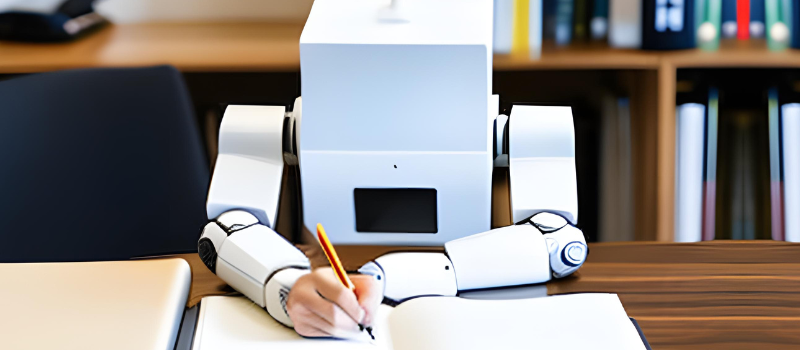With the sudden rise of Artificial Intelligence (‘AI’) in platforms including Chat GPT, Jasper Chat, Dall-E etc, arise new risks for individuals and businesses.
Have you asked yourself: who owns the copyright in the content produced in response to my prompts?
Might there be copyright and other intellectual property implications arising from the rise of the machines?
Can content generated by AI infringe copyright?
Whilst it is yet to be confirmed under Australian law, there is a serious risk that content generated by AI systems could infringe the copyright of a third party.
This risk stems from how AI systems work.
Generative AI tools are invariably trained by data and some of the data is protected by copyright. ChatGPT, for example, is fed on large amounts of data from the internet, some of which material will be subject to copyright protection. The system is then trained to produce written works that mimic a certain style or respond in a specific way. These outputs may be similar or even identical to existing works that are subject to copyright. At the very least, the outputs will, to varying degrees, be highly likely to be based on the prior works. The difference between a generative AI tool and a human is that a human can perceive prior works by the senses and doesn’t need to copy the prior work by encoding them, as AI “artists” must do.
Could a user who distributes the response without permission from the original copyright owner be infringing the original author’s copyright?
Theoretically, yes. Under the Copyright Act 1968 (Cth) (‘the Act’) the copyright in a literary, dramatic, musical or artistic work is infringed by a person who, not being the owner of the copyright and without the licence of the owner of the copyright, does in Australia, or authorises the doing in Australia of, any act comprised in the copyright. In the instance of a literary work reproducing the work could amount to infringement.
An output from AI has yet to be held to have infringed copyright in Australia. While it isn’t clear if ChatGPT’s model alters original works enough to avoid infringement, it is important to be cautious of the fact that the infringement risk extends to the user of AI platforms.
Who owns the rights to the output from the AI?
Other important questions for consideration are who owns the rights to the outputs from AI, and if there is a copyright attributable to the outputs.
ChatGPT’s Terms of Use, for example, state that subject to compliance with the Terms, OpenAI assigns the rights, interests and title in the generated “output” to the user who enters the “inputs” to receive the generated content. Notably, the terms come with the caveat that outputs are owned by the user subject to the extent permitted by applicable law and, in Australia, this is the Copyright Act 1968 (Cth) (‘The Act’).
The Act defines a qualified person to hold copyright and therefore assigns it as “an Australian citizen or person … resident in Australia or a body corporate incorporated under a law of the Commonwealth or of a State.”
As an AI platform is neither a person nor body corporate within Australia, copyright is unlikely to exist in the outputs, and as such cannot be assigned to users.
This might explain the position being taken by OpenAI, for example, with ChatGPT, where they purport to assign the rights, interests and title in the generated “output” to the user.
Further, in Commissioner of Patents v Thaler [2022] FCAFC 62, the Full Federal Court held that legislative schemes are designed to only recognise people with a “legal personality” as an actual inventor. Without legislation that specifies otherwise, it is unlikely that AI can be the creator of copyrightable material.
If it is held that copyright does not exist in the outputted materials then users of the owners of the platform would not be able to enforce rights under copyright in Australia anyway.
This doesn’t necessarily undermine the rights of the original owner of the work from which the AI platform sourced material or content to inform its “output”.
If copyright is infringed, who is the copyright infringer?
Another important question is whether the user of the platform ][is responsible for any breaches of copyright.
As canvassed already, the Act specifies that where infringement occurs, the infringer is the person who does, or who authorises the doing of, the acts comprised in the owners copyright. The application of this principle to the owners of AI tools or applications like ChatGPT is unknown at this stage, and comes down to how ChatGPT works in practice and if it has been trained to ensure that it does not reproduce a substantial part of a copyrighted work.
Whilst there are undoubtedly benefits to using artificial intelligence, we warn you to be wary of the risks associated with doing so and to stay up to date with any legislative changes surrounding this issue.
What steps should be taken?
It will be important that your business or organisation develops a policy on the use of AI.
Your team should also be trained in their use of AI, including the skills associated with prompt engineering and output use.
Our intellectual property team can assist.
For further information please contact Ben Gouldson, Director.


 Project Trust Account Rollout Extended
Project Trust Account Rollout Extended